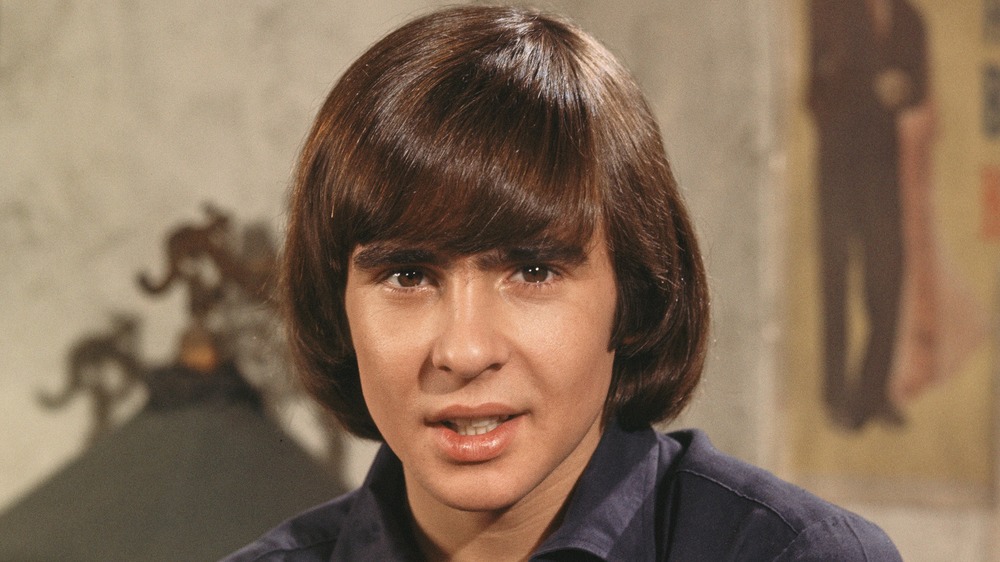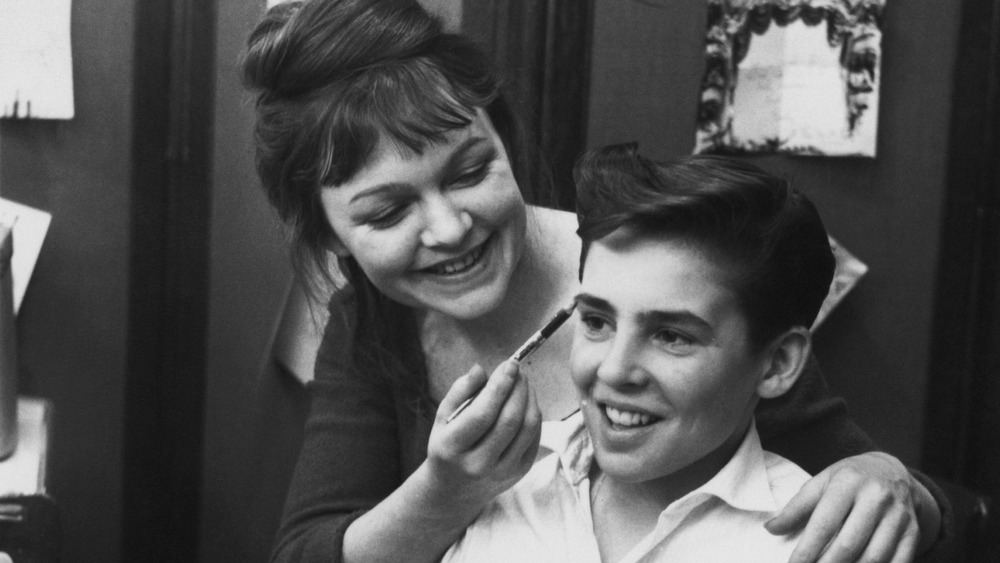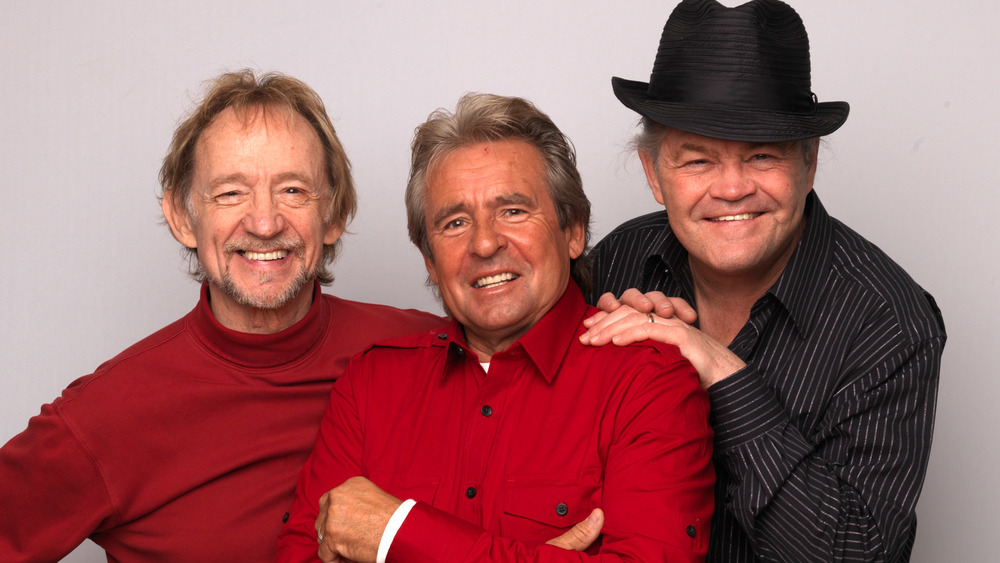The Untold Truth Of Davy Jones From The Monkees
The Monkees have been providing low-hanging fruit for snarky music journalists ever since the Pre-Fab Four debuted as a situation comedy setup on the NBC-TV network in 1966. They were an unapologetic ripoff — or, to be kind (what with imitation being the sincerest form of flattery), an homage — to The Beatles, especially the Beatles as presented in their 1964 film A Hard Day's Night. Four distinct characters, singers/songwriters with a sense of humor about themselves and the universe. The Monkees even copied the Beatles' "types." The casting directors must have thanked their lucky stars the day they ran across their McCartney type in the form of an actual Brit who was not only McCartney-level cute but had show business chops to spare.
The lad in question was Davy Jones, born December 30, 1945, in Manchester, England, as CNN tells us. While each of the other three Monkees had at least some music background, and Micky Dolenz had been a child TV star, Jones was a child TV actor who'd also been a standout on the London stage in the musical Oliver! When that production moved to the United States, Jones picked up a Tony award nomination. The play also gave him another brush with fame: Jones and the cast performed on The Ed Sullivan Show the same night The Beatles debuted. According to Mental Floss, it was an Aha! moment for Jones: "I saw the girls in the audience going crazy and decided that I wanted a piece of that."
He'd been acting professionally since childhood
He was diminutive, topping out at 5'4" (and losing an inch as he aged, as CNN quoted him), and at one point trained as a jockey, says Biography. But show business was good business for Jones, and The Monkees were very good business indeed. The sitcom picked up an Emmy award for Outstanding Comedy Series in 1967. The band sold enormous numbers of singles and albums, including three Number 1 hit singles, says The Hollywood Reporter. Jones shared lead vocals and performed hand percussion (on screen, anyway).
The series only lasted two seasons. The cheerful, perky plot lines belied dissatisfaction on the part of the young men, who fought the producers for the right to play their own instruments and record their own songs, and fought with one another — according to The Daily Mail, Jones once head-butted fellow Monkee Peter Tork. ("I fought with all of them except Mike Nesmith, because he was 6ft 2in and would have killed me," Jones said.) According to Rolling Stone, Jones, the seasoned professional, had some advice for the increasingly unhappy Nesmith: "David continually admonished me to calm down and do what I was told. His advice to me was to approach the show like a job, do my best, and shut up, take the money and go home."
Their feature film, Head, was a critical and box office disappointment. Tork quit first, then in 1970 the others went their separate ways, for a time, anyway. For Jones, that meant guest-star shots on shows like The Brady Bunch.
Once a Monkee, always a Monkee
Essentially he repeatedly played his Monkee self. Rolling Stone suggests that "Davy Jones would be a Monkee for as long as he lived."
Jones followed the advice he gave to Nesmith. He hit the stage again, and took part in 1970s nostalgia act tours. In 1986, lightning, or something like it, struck again when MTV started showing old episodes of The Monkees. Jones, Tork, Nesmith, and Dolenz were back in the pop culture limelight. Nesmith wasn't interested, but the other three reunited and toured regularly. By the '90s the foursome was back together and recording as well as touring. Their final tour in 2011 "was phenomenal," drummer Micky Dolenz told Rolling Stone, "and David had so much to do with putting that together and staging it." The band earned the respect of critics at last, as well as that of other, serious rock acts — R.E.M.'s Mike Mills said, "People realize how great the songs are."
Jones married three times, and had four daughters from his first two marriages. He was living in Florida, raising and racing horses, and by all accounts happily married, occasionally performing as a solo act. On February 29, 2012, he died of an apparent heart attack, CNN reported. He was 66.
If he had chosen differently, might he have had a distinguished theatrical career, on the stage in England and perhaps elsewhere? Hard to say. But in 2011 Jones himself wrote, "not everyone has dreams and hopes that come true. Mine have."


